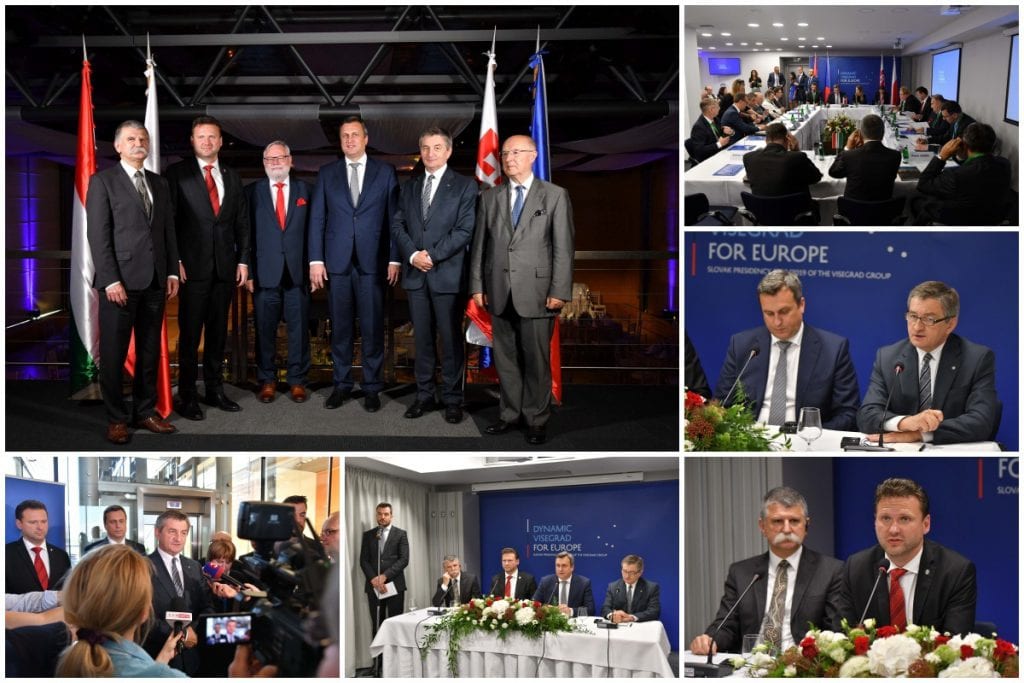On Friday, 11 December at 14.00 during the Foreign Affairs Committee will be taken up the topic of cooperation within the Visegrad Group and the current situation in its member states by the Minister of Foreign Affairs.
The Visegrad Group (also known as V4) is a regional platform for cooperation that was established on February 15, 1991. Its members are four EU and NATO member states: Poland, Czech Republic, Slovakia and Hungary. The group is not legally a political entity unlike the EU.
V4 is a tool to promote European integration and facilitate regional cooperation between its members on political, economic and geostrategic issues. It is an informal group much like Benelux (comprising Belgium, the Netherlands and Luxembourg) or the Nordic Council (formed by Iceland, Denmark, Sweden, Norway and Finland).
The population of V4 is about 64 million, or about 13% of the total EU population. Poland is by far the largest country of the four. It represents more than 60% of its entire population and more than half the area of the group.
For the first time, the issues of Czechoslovak-Polish-Hungarian cooperation were raised on January 22, 1990, during the visit of the first non-Communist Polish Prime Minister Tadeusz Mazowiecki to Prague.
On 15 February 1991, presidents Lech Wałęsa, Václav Havel and József Antall signed the so-called "Declaration on Cooperation of the Polish, Czech and Slovak Federative Republics and the Republic of Hungary Towards European Integration".
In the Visegrád Declaration, the parties declared that the similarity of the situation as it has developed over the past decades sets the three states fundamental convergent goals. Among these goals may be mentioned:
- Full restoration of national independence, democracy and freedom;
- liquidation of all existing social, economic and spiritual manifestations of the totalitarian system;
- building a parliamentary democracy, a modern state of law, respect for human rights and fundamental freedoms;
- The creation of a market economy;
- To be fully integrated into the European political and economic system, security and legislation.
The signatories of the declaration clearly understood this cooperation as a stepping stone on the road to Western integration structures. Moreover, their goal was not to create new divisions but to strive for a new, united Europe.
You are invited to follow the Foreign Affairs Committee meeting on Friday, December 11 at 2 p.m.
Broadcast of the meeting will be available on the parliamentary website www.sejm.gov.pl under the "today's broadcasts" tab.
http://www.sejm.gov.pl/sejm9.nsf/PlanPosKom.xsp?view=2&komisja=SZA



